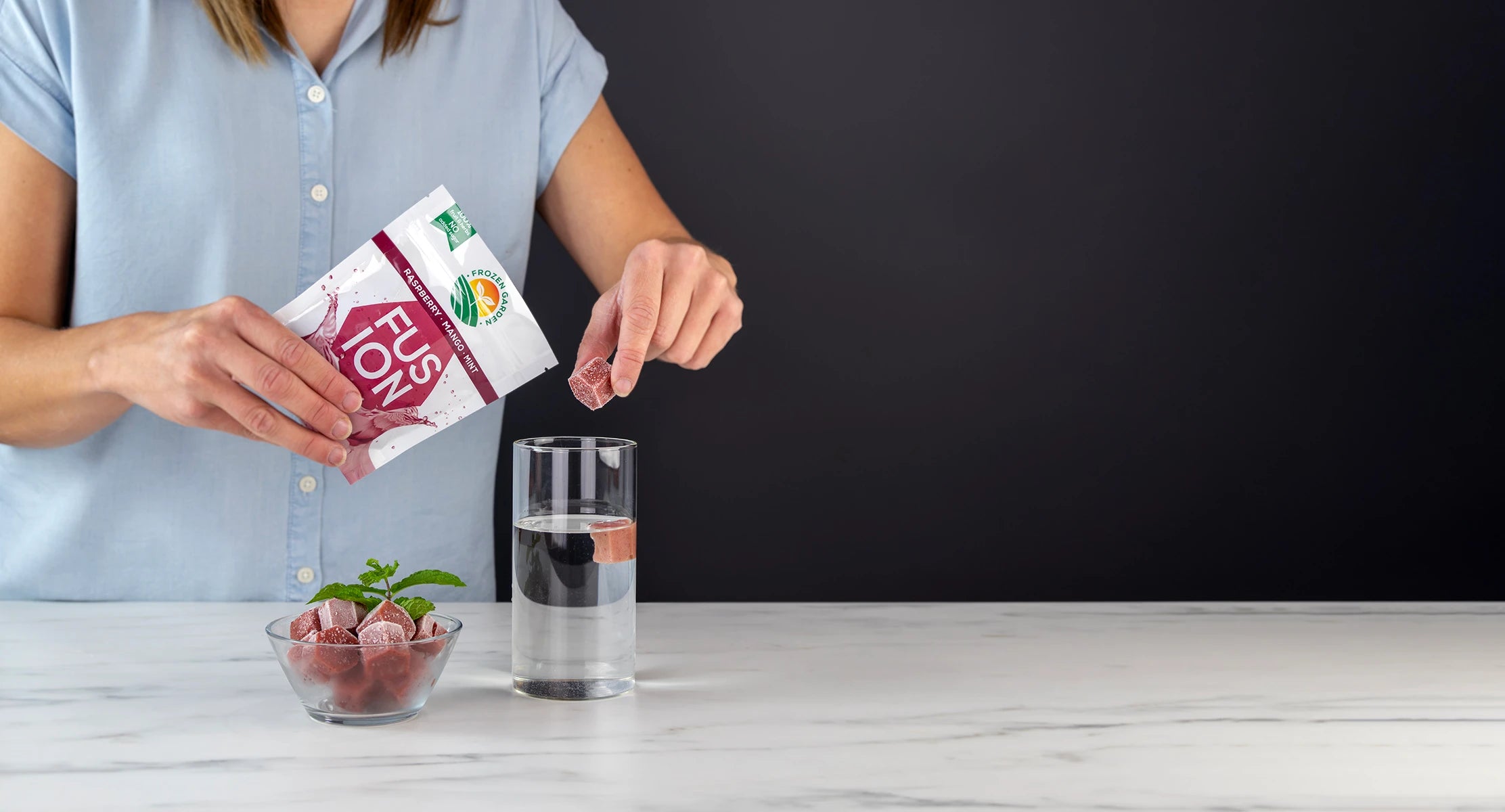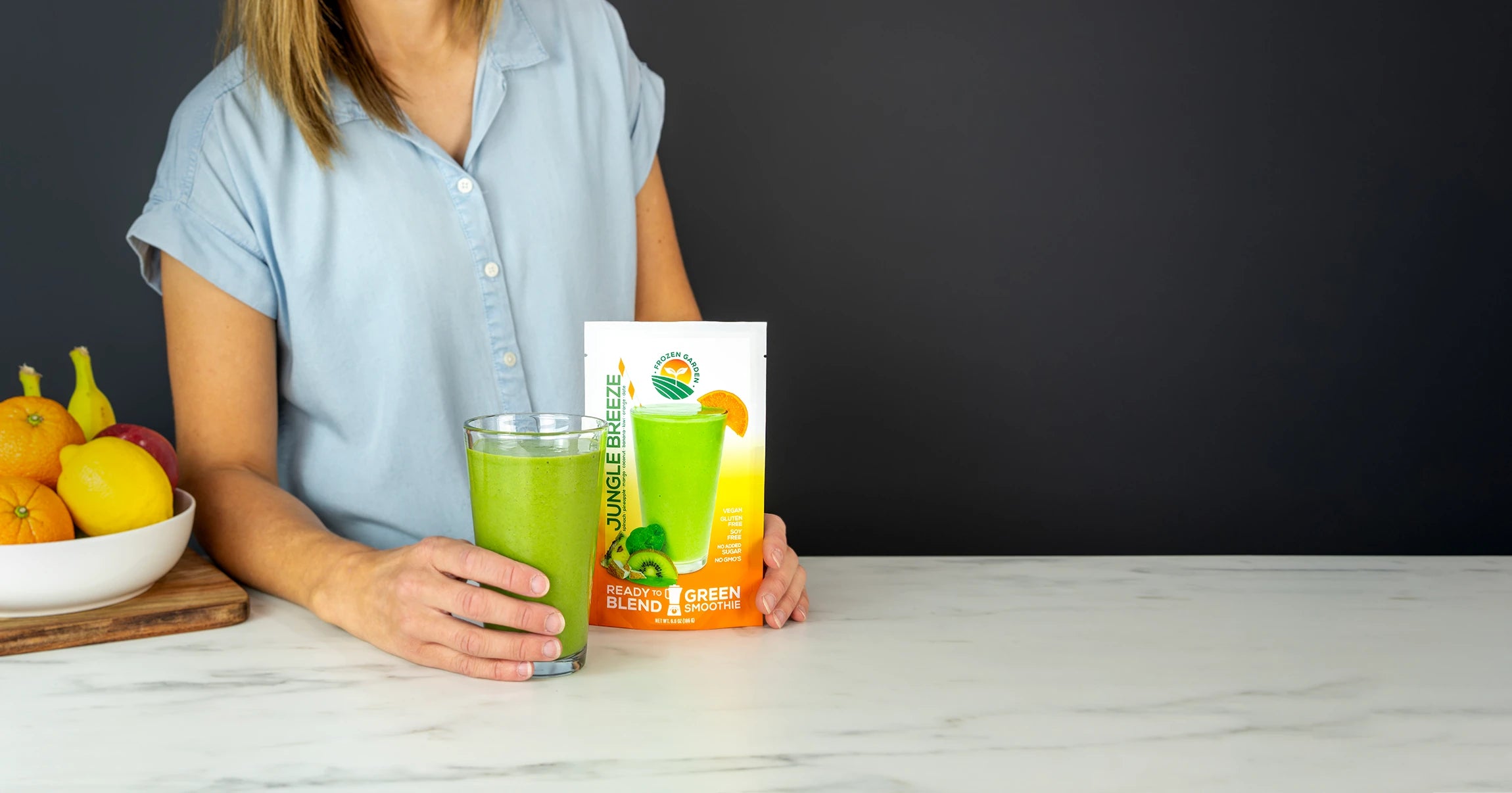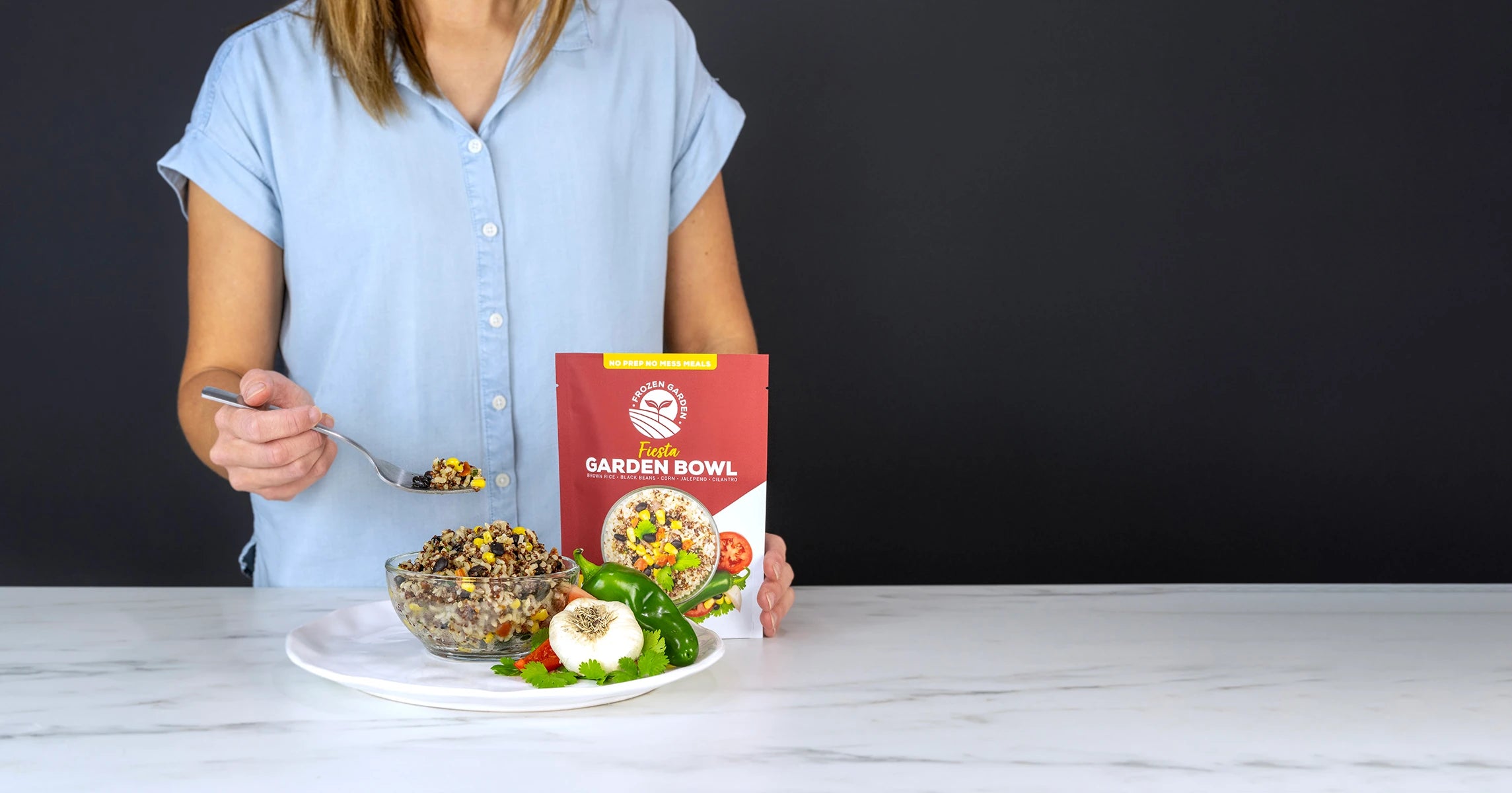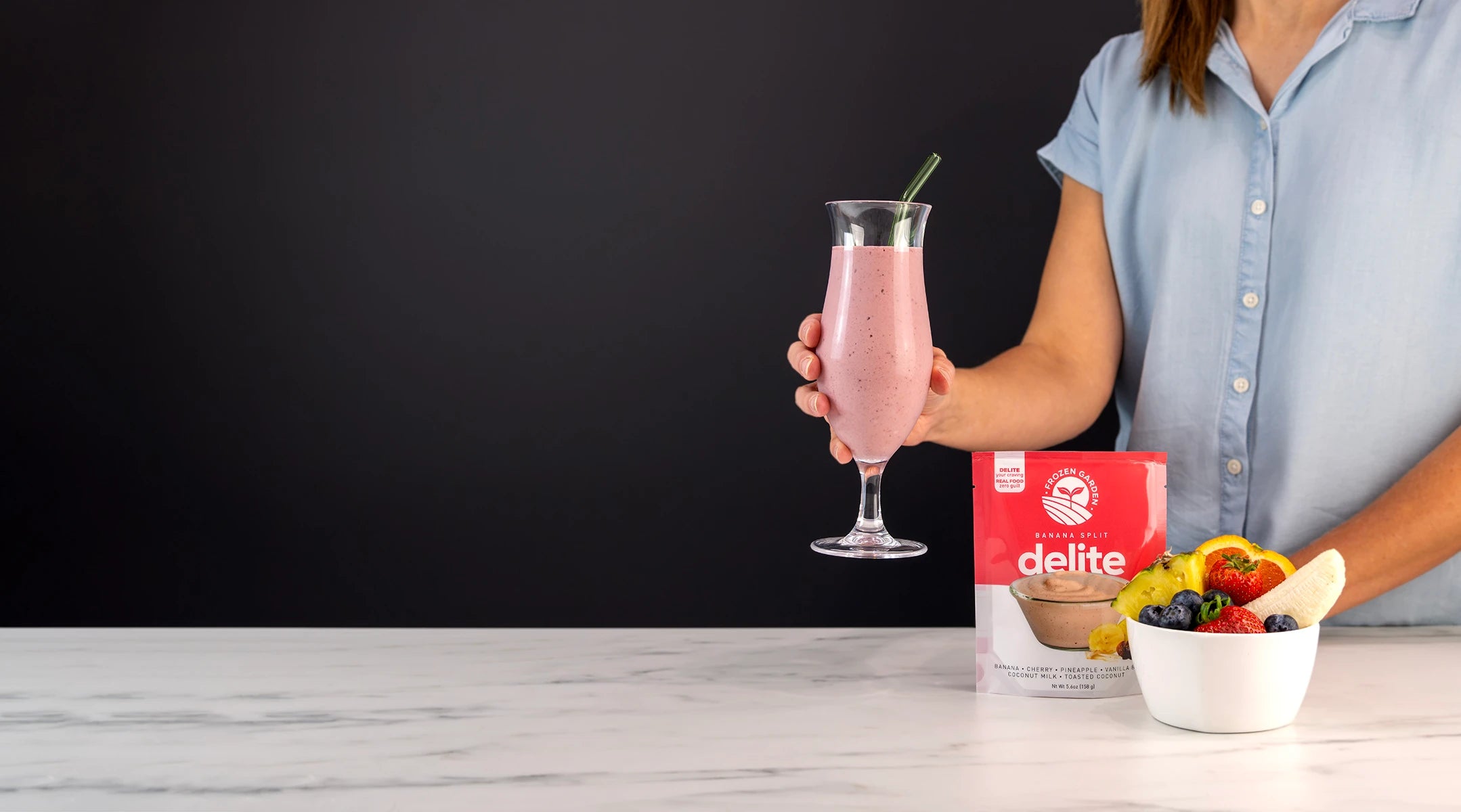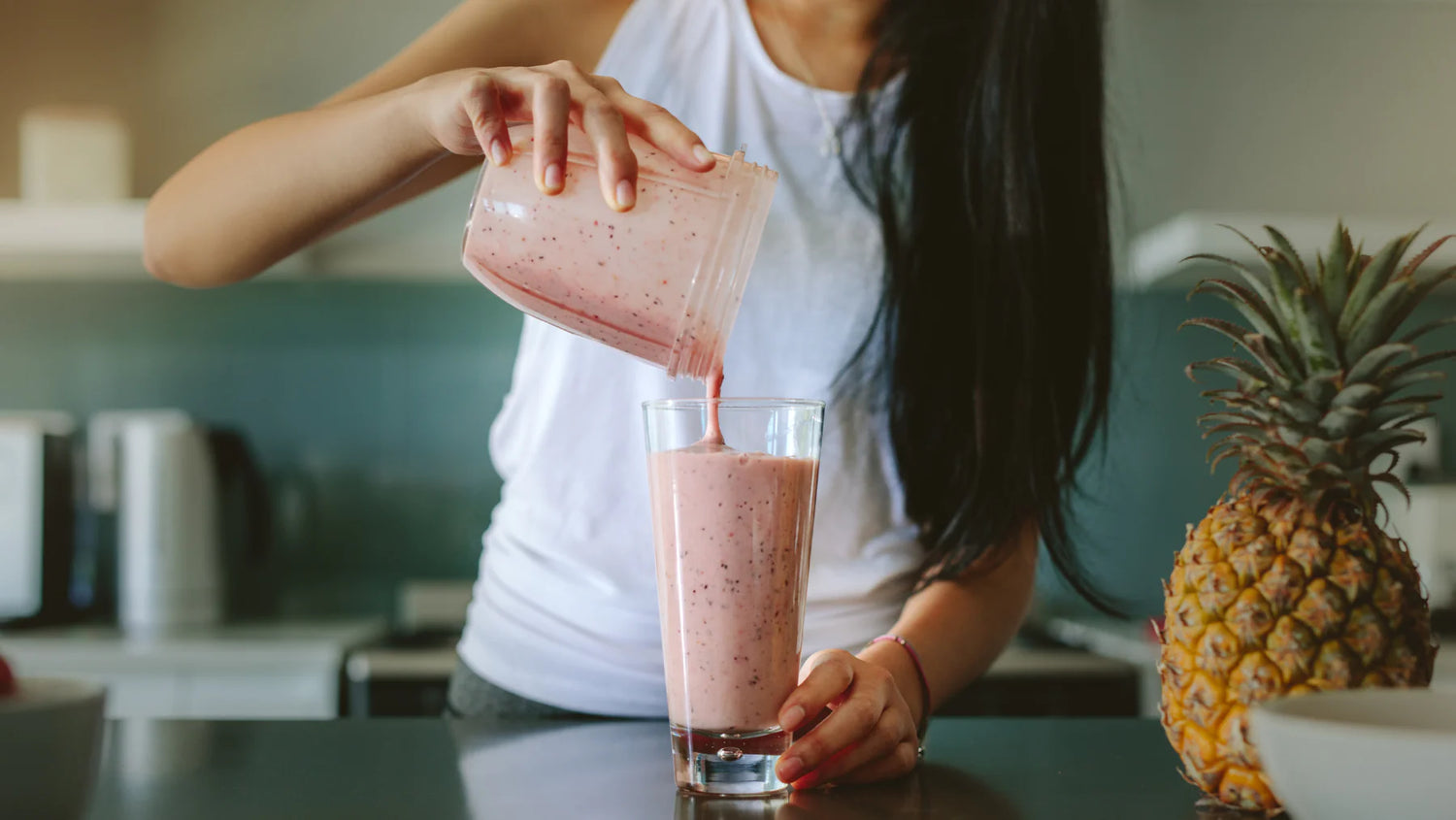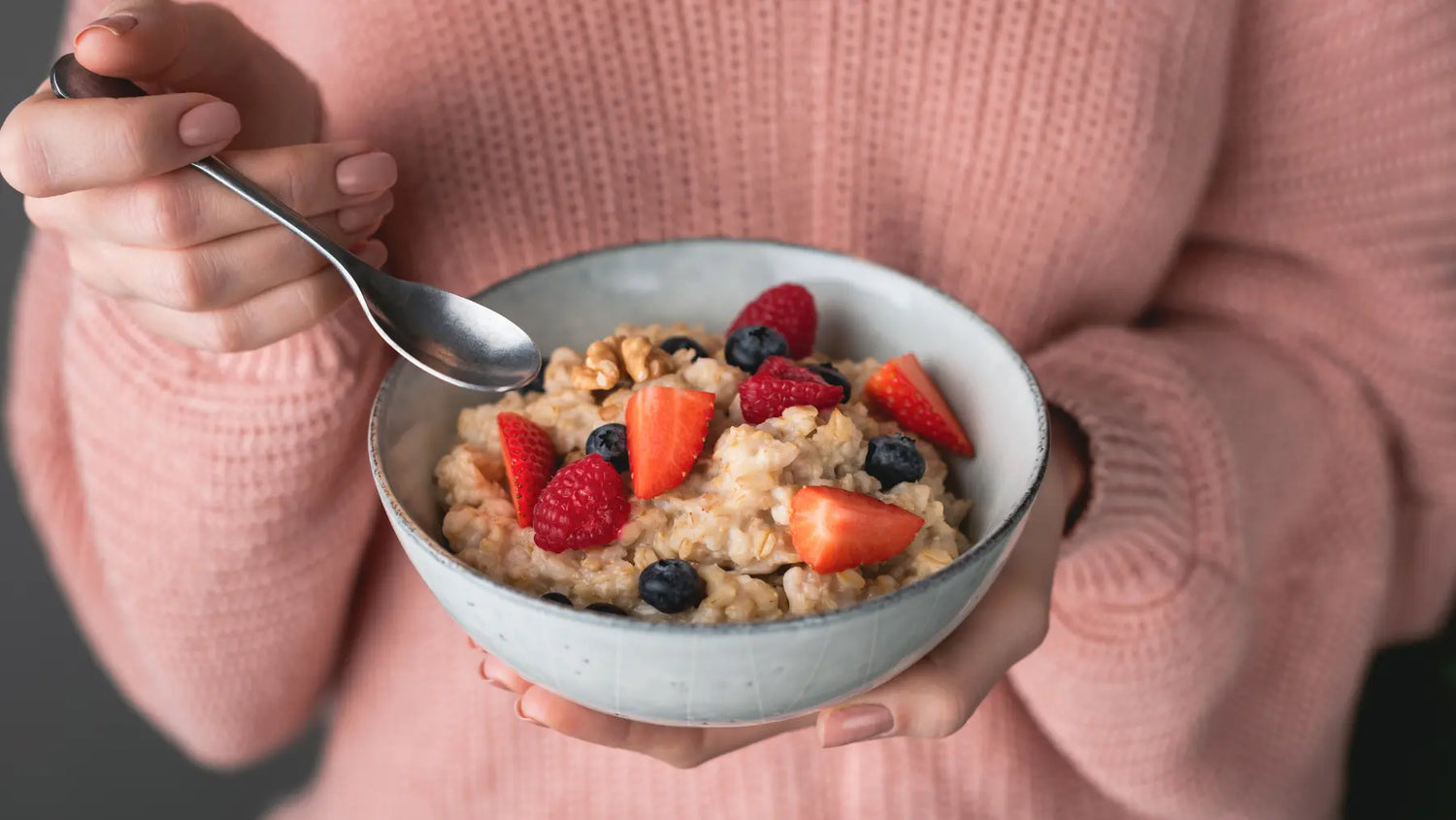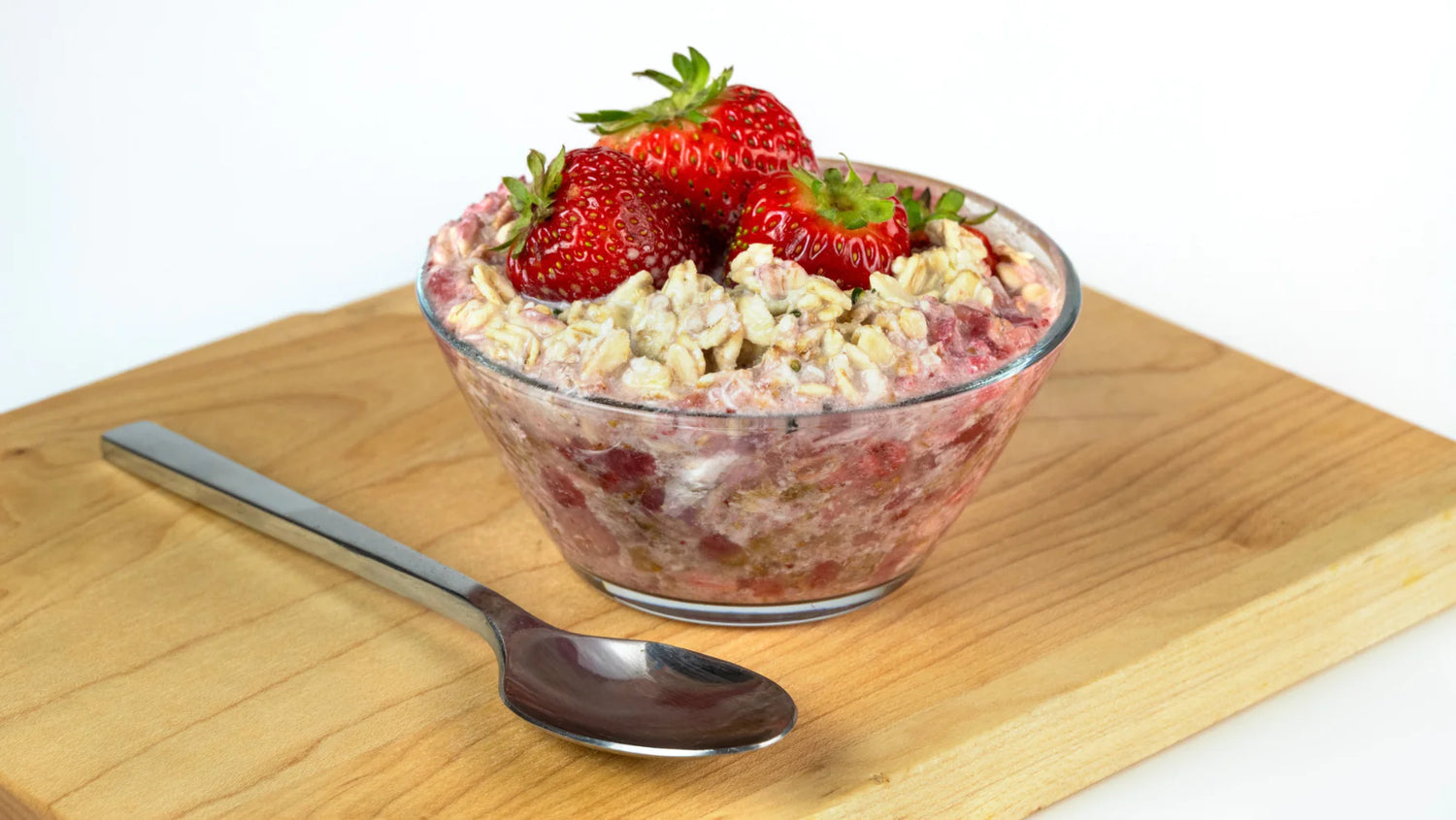The debate between frozen vs. fresh produce rages on, but what does the science say? Get ready as we dive into the convenience, sustainability, and nutritional truths behind these options.
We'll tackle the time-saving benefits of no-prep frozen produce and its role in cutting food waste. Also explore research showing how freezing locks in nutrients, often surpassing fresh stored produce.
Our locally-sourced, blast-frozen smoothie ingredients capture produce at its nutritional best. We partner with farmers to obtain top-quality fruits and veggies before expertly freezing them to retain maximum nutrients.
Get the real facts behind fresh vs. frozen. Learn how frozen fruits and vegetables can enrich your diet through enhanced convenience, sustainability and nutrition compared to their fresh counterparts!

The debate over whether fresh or frozen fruits and vegetables are more nutrient dense is a long-standing one. Many people may assume that fresh produce is the healthier option because, well, it’s fresh; however, it's important to consider the science behind your options. Recent research indicates that frozen fruits and veggies can be just as nutrient-dense - if not more - than their fresh counterparts. Here, we will explore the potential benefits of incorporating frozen fruit vs fresh fruit and veggies into your diet.
Convenience: Frozen Fruit vs Fresh Fruit & Veggies

Before even jumping into the research about the nutritional benefits of frozen fruit vs fresh fruit and veggies, we have to assess the obvious convenience of opting for frozen over fresh. There’s little to no prep time associated with tearing open a bag of frozen fruits or vegetables. Fresh fruits and veggies, on the other hand, must be washed and then trimmed, peeled, chopped, or sliced before they can even be used in your recipe. And not to mention any knives or cutting boards used to do that trimming, peeling, chopping, and/or slicing must now be washed… whomp whomp. In contrast, frozen fruits and veggies generally don’t require any dishes as most have the ability to be prepared in the bag they are sold in.
Sustainability of Frozen vs Fresh Fruit & Veggies

Sustainability is a really important aspect to take into consideration when looking at the pros and cons of frozen fruit vs fresh fruit and vegetables. First and foremost, think about the food waste typically generated from fresh produce. Not only do you have to dispose of any trimmings, but if you don’t use all of the produce purchased in time, you have to throw it out. Frozen fruit and veggies can be stored in your freezer for an extended period of time before expiring. If you buy frozen produce and end up not being able to use it right away, you don’t have to worry about it wilting or going bad. Not contributing to the ever growing food waste epidemic is a huge plus in our book!
Locking in those Nutrients

Now that we agree that the convenience and sustainability of frozen fruit vs fresh fruit and veggies is anything but comparable, we can get into the nitty gritty research about why frozen fruits and vegetables might actually be more nutritious. According to a study on frozen fruit vs fresh fruit and veggies by a research team at the University of California-Davis in partnership with The Frozen Food Foundation, freezing fresh fruits and vegetables actually locks in nutrients, which helps retain high levels of vitamins and minerals. Dr. Diane Barrett, lead researcher of UC Davis at the time of the study, says: “The study revealed that in most cases frozen produce is nutritionally equivalent, and often superior, to its fresh-stored counterpart. In particular, the vitamin C content of frozen corn, green beans and blueberries was significantly higher than their fresh-stored counterparts.”
The research and experimentation demonstrated the same effects on vitamin B2 and E, each of which plays a key role in your diet. Vitamin B2 is vital in maintaining the body’s energy supply, vitamin E has antioxidant properties, and vitamin C is well known for supporting your immune system. Not only were the vitamin properties preserved in the freezing of fruits and vegetables, the nutritional value of some minerals were found to be well-conserved in frozen fruits vs fresh fruits and vegetables. “Freezing is simply nature’s pause button. This research adds to a growing body of evidence that supports the important role frozen fruits and vegetables can play to help Americans meet daily intake requirements,” says Kraig R. Naasz, The Frozen Food Foundation President at time of study.
This is just another reason why we love working with local farmers so much! Each one takes the time and energy to harvest their fruits and veggies at peak ripeness. They then deliver the fresh produce directly to our production facility where we can then blast freeze everything to retain maximum nutrients. Once everything has been properly frozen it’s ready to go in some of your favorite smoothies.
Fresh Produce by the Masses

Now, you also may be thinking—hey, food from local farmers is kind of expensive, why not save money by buying from a mass producer? We’re glad you asked! In most cases, fresh produce from mass produce suppliers is picked before it’s even ripe, which means there hasn't been enough time for it to get chock-full of the vitamins and minerals that we try to preserve by freezing. On top of that, it’s also likely that the same produce is being taken on a cross country trip in a warm truck. Did you know? When stored at 68 degrees, spinach loses 47% of its nutrient content after only four days. And semi trailers can actually reach temperatures of 130 degrees which would accelerate the degradation of those vitamins and minerals that we benefit from.
Plus, fresh fruits and vegetables from farmers taste waaaaaay better than anything you’ll come across in a grocery store. We rely on those great tastes to add amazing flavors to all of our products and that’s not something we’re willing to compromise on. We only want the best of the best when it comes to produce, so we can be sure we’re providing quality, nutrient-rich products to all of our customers.
In Conclusion...
Frozen fruits and vegetables have proven to be the ideal choice for convenience, sustainability, and nutrition. From their affordability to their long shelf life and nutrient content, it’s clear that frozen fruits and veggies offer immense value for consumers seeking a nutritious diet. Not only do they cut down on food waste, but they also help with meal planning and preparations. Plus, with the range of options available, there's something for everyone! Now that you know all about the wonders of frozen produce, make sure to stock up on your favorites next time you go grocery shopping. Or better yet, stock up on some of our products right here where we’ve already taken care of crafting delicious flavors with loads of nutritious benefits for you to enjoy. After all, what could be more satisfying than having healthy, tasty food at your fingertips any time of the day?



